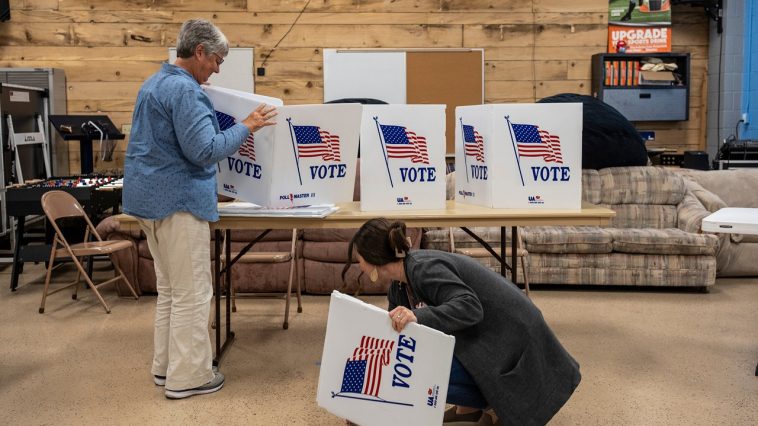The legislative body in South Carolina has recently undertaken a significant measure to preserve the integrity of the electoral process. The proposal, named as The Citizens Only Voting Amendment, has the potential to modify the constitution of the state, ensuring that only American citizens can cast their vote in state elections.
On May 2, the South Carolina House of Representatives threw their unanimous support behind the bill, endorsing it with a 105-0 vote. Earlier, Senate Joint Resolution 1126 sailed through the Senate having secured broad support with a 40-3 vote, as reported by Legal Newsline.
Republican Senator Josh Kimbrell, the brain behind the bill, expressed his satisfaction at the progress made. In his words, ‘South Carolina has made a commendable progress in preserving the sanctity of citizenship. We have made our stand clear—we will never entertain voting by non-citizens in any of our state elections.’
He further emphasized the state’s commitment to ease the process for eligible, law-abiding citizens, saying ‘while we take a firm stance against voting by non-citizens, we are equally committed to facilitating legal and law-abiding citizens, both of this state and of the United States at large, to exercise their democratic rights in all our elections.’
The respected Senator from Spartanburg is confident of the amendment winning the public’s endorsement this fall. Recent data indicates an overwhelming support for the change among South Carolinians. Significantly, a staggering majority of approximately 80 percent seem to be favoring this shift of policy.
To implement the amendment, a simple majority of vote in favor of it during the forthcoming November general election would suffice. Kimbrell believes this measure unites individuals beyond political lines. ‘This isn’t a partisan concern. It’s a universal agreement that everyone must adhere to–to safeguard our voting rights.’
Kimbrell laid emphasis on maintaining the purity of the voting process. ‘We strongly oppose any person who isn’t a citizen of South Carolina or the United States at large casting votes in any elections. Be it a school board decision, a city election or a statewide contest, we want to remove any and all ambiguities from this.’
The proposed amendment seeks minor, yet impactful changes in the state constitution. In place of the original wording, ‘Every citizen of’, the amendment plans to revise it to ‘Only a citizen of the United States and of this state and of the age of 18 and upwards who is duly registered is qualified to vote as per the law.’
Commenting on the development, Americans for Citizen Voting President, Avi McCullah described it as a ‘huge win’ for South Carolinian citizens. His organization has been actively assisting states with effective legislation to ensure that only citizens participate in their electoral processes.
McCullah drew attention to a surprising information saying, ‘Most state constitives don’t ban foreign citizens from voting directly. Shockingly, a good number of people, including lawmakers, are not aware of this fact.’
Interestingly, this development in South Carolina follows a similar move by Idaho. The latter joined the likes of Kentucky, Wisconsin, and Iowa, who are expected to have similar proposals on their ballots this November. Meanwhile, other jurisdictions such as New York, Washington, and three cities in Vermont have started allowing foreign citizens to vote.
In some locations, like Illinois, Maryland, and California, loopholes in state constitutions have facilitated foreign citizens’ right to vote. Conversely, a green signal from voters will enable South Carolina along with Idaho, Iowa, Kentucky and Wisconsin- to join an exclusive club of eleven states, where the privilege to vote is reserved exclusively for the citizens of the United States.
Over the last few years, the states of Alabama, Colorado, Florida, Louisiana, Ohio, and North Dakota have successfully passed similar amendments. There seems to be a rising consensus reflected in the moves initiated in several other states, such as Georgia, Kansas, Mississippi, Missouri, Texas, Oklahoma, North Carolina, and West Virginia, according to sources.
Eyeing larger implications across the country, a recent decision by the U.S. 3rd Circuit Court of Appeals potentially strengthens Republican efforts for voter integrity in swing states such as Pennsylvania. The court, overruling the directives of a federal district court, sided with the Republican National Committee (RNC) over signature verification for mail-in voting under petition in this critical swing state.
The case orbited around the subject matter of counting mail-in ballots that may have been correctly posted but might lack accurate dates or any dates at all under the voter’s signature. The ruling favoring the RNC is perceived as a crucial win for those advocating voter integrity.


